Home » Current Students » Recommended Reads
Recommended Reads
Posted by Anna Warren on Friday, December 8, 2017 in Current Students.
Looking for some winter reads? Check out these recommendations from a few of our HOD professors:
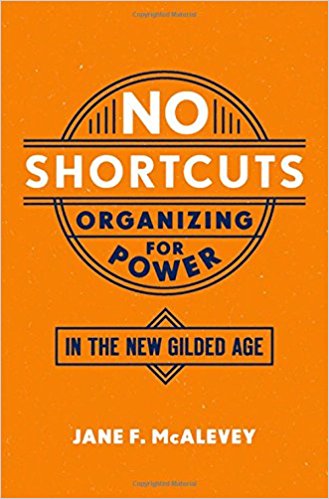 No Shortcuts: Organizing for Power in the New Gilded Age by Jane McAlevey
No Shortcuts: Organizing for Power in the New Gilded Age by Jane McAlevey
This is a book about labor organizing, but it taps into
the rich ‘relational’ models that I focus on in organizing research. Discussing some of the recent failures of the progressive movement, McAlevey argues that progressives can succeed, but a rethinking of the basic assumptions of organizing is required. No Shortcuts is well written and provides concrete examples that have practical implications for those interested in social change.
The Making of Pro-Life Activists: How Social Movement Mobilization Works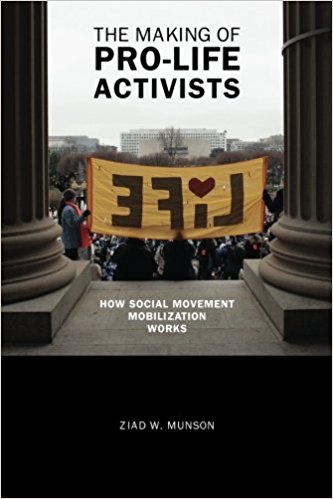 by Ziad Munson
by Ziad Munson
One deeper theoretical question that we probably don’t talk about enough in CDA is ‘How do people change their minds?’ In the era of big data and segregation by ideology (another good book–The Big Sort: Why the Clustering of Like-Minded America is Tearing Us Apart by Bill Bishop), the most prevalent method for getting ‘civic engagement’ is to target individuals based on characteristics like race, class, consumption patterns, etc. In this book, Munson offers profound implications for this dominant method of ‘cherry-picking’ to garner participation by looking at how the pro-life movement has encouraged participation and recruited new members
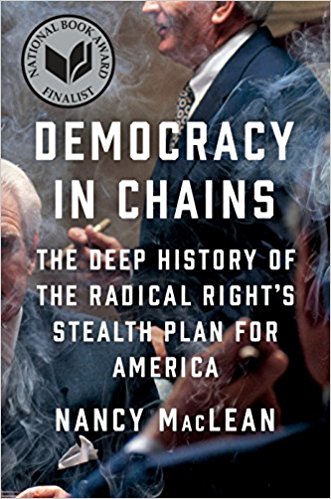 Democracy in Chains: The Deep History of the Radical Right’s Stealth Plan for America by Nancy MacLean
Democracy in Chains: The Deep History of the Radical Right’s Stealth Plan for America by Nancy MacLean
This book is about something called ‘public choice theory’ which has become influential in our neoliberal era. Basically, public choice theory brings an economic lens to interpret political behavior. The book is over-the-top in many ways, but offers some important examples of common public policies that are important to consider from an understanding of how public choice theory is structured.
We Were Eight years in Power: An American Tragedy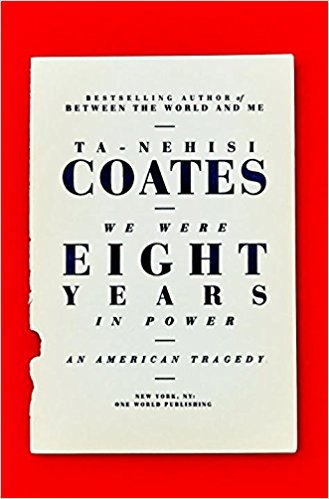 by Ta-Nehisi Coates
by Ta-Nehisi Coates
Echoing the lament of Reconstruction-era black politicians when the South’s try at multiracial democracy came to an end, Ta-Nehisi Coates’ collection of essays reflects on the issue of race through contemporary presidential politics. By examining the voices and movements for justice through the Obama era and Donald Trump’s recent election, We Were Eight Years in Power provides an insightful and personal account of modern America in consideration of the nation’s unreconciled racial history.
Bloodchild and Other Stories by Octavia E. Butler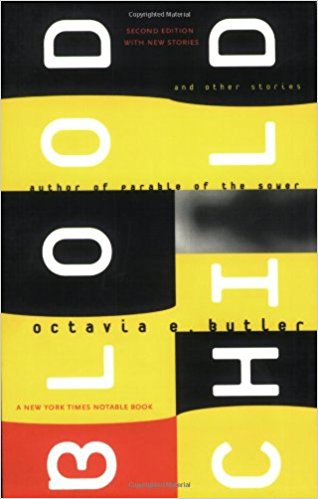
In this award-winning collection of stories, Octavia E. Butler employs elements of science-fiction prose to draw parallels to the contemporary world. In “The Evening and the Morning,” she imagines the emergence of a new social caste as an outcome of a genetic disease. In “The Book of Martha,” she questions what one would do if asked by God to help save humanity from itself. Through such stories, Butler explores issues of human destructiveness through a dark and futuristic perspective, with an ultimate search for hope.
Everyday Bias: Identifying and Navigating Unconscious Judgments in Our Daily Lives by Howard Ross

In this work of non-fiction, Howard Ross explores the issue of implicit bias, which all of us have, but few of us acknowledge. Incorporating case studies from his work as a prominent diversity consultant, Ross helps readers understand unconscious judgment in their everyday lives, in an attempt to answer why disparities continue to exist even in a society that embraces diversity as an essential value. This insightful read not only discusses how and why bias exists, but also offers practical examples of how to overcome it.
Other titles to check out: Hunger: A Memoir of (My) Body by Roxane Gay, Year of Yes: How to Dance It Out, Stand in the Sun and Be Your Own Person by Shonda Rhimes
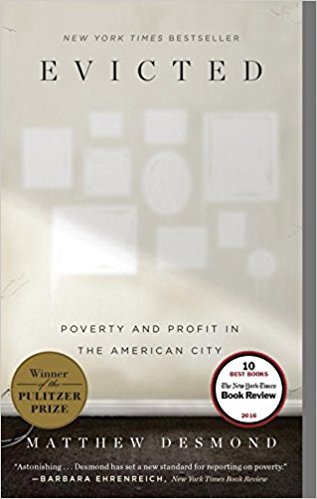 Evicted: Poverty and Profit in the American City by Matthew Desmond
Evicted: Poverty and Profit in the American City by Matthew Desmond
Desmond follows both tenants and landlords in one of Milwaukee’s poorest neighborhoods, focusing on the role of eviction in cycles of housing and economic instability. Beyond being an excellent piece of scholarship that highlights the role of eviction in the reproduction of inequality, Desmond is a model of academic writing for popular audiences. The book can hold its own against the best non-fiction out there, not something that can be said about many books by academics.
Stamped from the Beginning: The Definitive History of Racist Ideas in America by Ibram X. Kendi
 Stamped received the National Book Award for best non-fiction last year and it was well-deserved win. Like Evicted, it is a great piece of scholarship that also happens to be very well written. In Stamped, Kendi presents a cultural history of five centuries of racist ideas in America and how they have been strategically used to preserve power. It is also challenging book as Kendi shows the problematic roots and implications of some the most common tropes of the anti-racist rhetoric that many of us use.
Stamped received the National Book Award for best non-fiction last year and it was well-deserved win. Like Evicted, it is a great piece of scholarship that also happens to be very well written. In Stamped, Kendi presents a cultural history of five centuries of racist ideas in America and how they have been strategically used to preserve power. It is also challenging book as Kendi shows the problematic roots and implications of some the most common tropes of the anti-racist rhetoric that many of us use.
Lincoln in the Bardo: A Novel by George Saunders
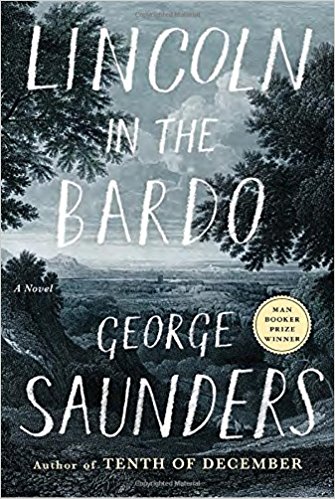 Beyond books related to my work I also typically like to be making my way through a novel. I partly justify this
Beyond books related to my work I also typically like to be making my way through a novel. I partly justify this
by saying it’s good for creative thinking and works other
parts of the brain, etc.., etc.., but truth is I just enjoy it. Saunders is one ofmy favorite short story writers (his recent collection Tenth of December is also great) and this is his first novel. The book is a bit hard to explain, but it’s from the point-of-view of several ‘ghosts’ in the bardo, the space between death and rebirth, as they watch Abraham Lincoln visit the crypt of his young son after he died of typhoid. Like all of Saunder’s work it is equal parts bizarre, hilarious, and moving.
Connect with Vanderbilt
©2024 Vanderbilt University ·
Site Development: University Web Communications